 |
||
|
||
| ||
Mitsumi CR-4805TE and Ricoh RW7083AWhen testing modern high-speed recorders, we have unintentionally left entry-level CD-RW drives aside. But it is not a sign of neglect of the simplest solutions in the field of CD recording. The technological progress is moving with rapid strides, and even the latest model today will be considered a middle-level system tomorrow. Let's take, for example the CD-RW drive market. 8x recorders appeared not so long ago in our computers, but today it is the minimum you can buy on the market. 12x drives become more and more popular among users who have decided upon an upgrade or who buy a CD-RW drive for the first time. Today, by the example of two entry-level models, we will try to fill up the gap in the reviews dealing with not very expensive CD-RW drives. Test resultsCDWinBench 99 CD-ROM Transfer RateFor the performance comparison in reading operations, apart from the CD-ROM Teac 540E, we have chosen the TEAC CD-W58E recorder as the closest competitor.  All CD-RW drives performed close to each other in this test. The RW7083A is a bit ahead leaving behind the Mitsumi and TEAC W58E. 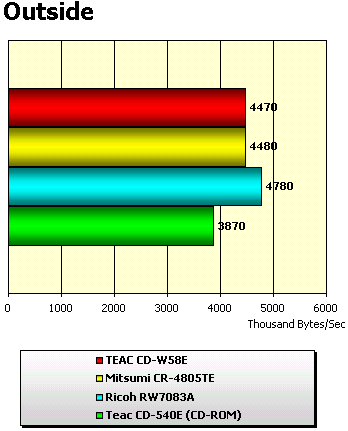 The situation is similar except the fact that all recorders have left behind the CD-ROM TEAC. The CPU utilization was: 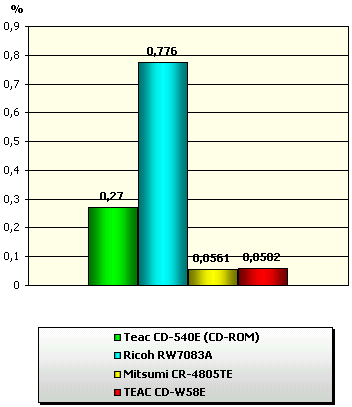 A rather high performance of the Ricoh RW7083A requires large processor resources. CDWinBench 99 CD-ROM Access Time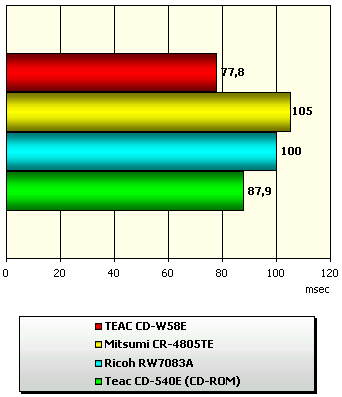 The leadership in this test is taken by the TEAC W58E: its access time is unachievable even for the CD-540E. The Mitsumi has shown 105 ms: although it is at the bottom of the table, the result is quite good for a so cheap model. CDWinBench 99 CPU Utilization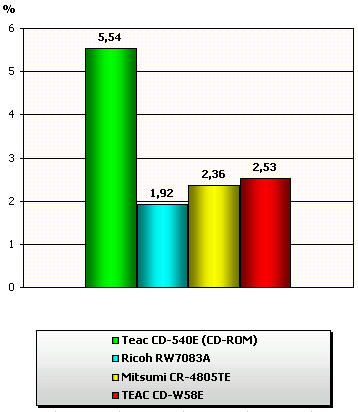 Despite a high CPU utilization at the continuous data transfer, the total load of the Ricoh RW7083A is the least among all contestants. The TEAC W58E and Mitsumi CR-4805TE go on a par. Time taken for CD recordingRecording of the CD-R Philips Silver (cyanine /TY/, 16x rated record speed) 8X
The TEAC W58E was first to reach the finish. The difference between it and the Ricoh, which turned out to be the last, is just a bit more than 20 sec. Whether it is much or not depends on your needs. Recording of the CD-R Mirex (phthalocyanine, 12x rated record speed) 12X
The phthalocyanine CD-R disc is recorded by the Ricoh much faster. It allowed the drive to perform very close to the CR-4805TE. Recording of the "noname"* CD-R (cyanine, the rated record speed is unknown) 4X
*For the tests we used the previous "technological" noname CD-R discs with a light cyanine active layer (close to the Taiyo Yuden in color, while today's discs are dark-blue, close to Verbatim CD-R discs). At the 4x record speed the W58E has fallen behind the Ricoh 7083A. The Mitsumi turned out to be the slowest in recording of cyanine technological discs, having lagged behind the RW7083A nearly by a minute. Time spent for full formatting of a CD-RW disc in UDF formatPhilips CD-RW 4x
Ricoh CD-RW 8x
The RW7083A won both in formatting of usual 1X-4X CD-RWs and in operations with High-Speed rewritable discs. We have also conducted experiments under the control of the InCD program from ahead Software. The W58E's results have become a little better, and the scores of the RW7083A are now better by a quarter as compared with those achieved with the DirectCD. The Mitsumi CR-4805TE works equally with the DirectCD and InCD, losing to the TEAC but winning from the RW7083A. Recording of a CD-RW disc (UDF)Philips CD-RW 4x
CD-RW Ricoh 8x
The TEAC deals much easier with recording of CD-RW discs. The Ricoh has performed even worse than the Mitsumi. The InCD allowed the RW7083A to come very close to the TEAC, but the 15-20sec difference didn't allowed the Ricoh to win in this test. BLER factor of CD-R discs recorded with the Ricoh drive.
When comparing the results obtained with the TEAC W58E drive,
(for these tests we used a device described in the fifth part of our review) we can see that the Ricoh 7083A quality is just excellent. Nevertheless, the TEAC takes easier such obscure things as "noname" CD-R discs which sell cheap in bulk. The Mitsumi CR-4805TE writes a bit worse than its competitors but it is priced less as well... CDSpeed 99The graph of reading of the Philips Silver Premium (8x record speed) Ricoh RW7083A 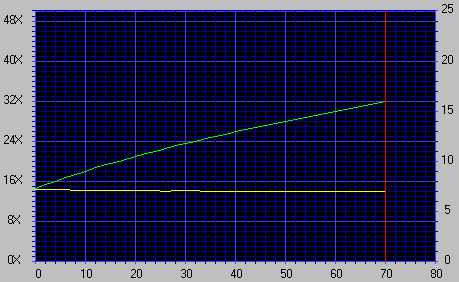 Mitsumi CR-4805TE 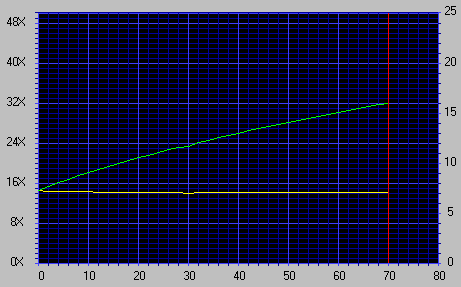 The graph of reading of the Mirex (8x record speed) Ricoh RW7083A 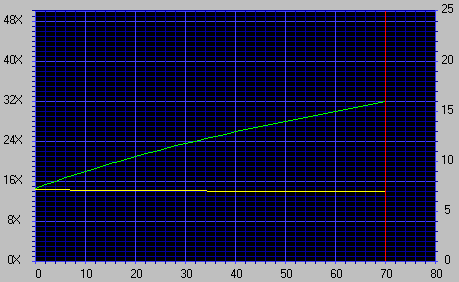 Mitsumi CR-4805TE 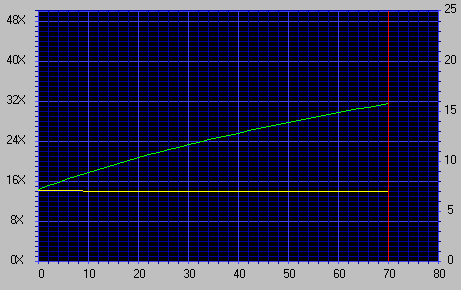 The graph of reading of the "noname" (4x record speed) Ricoh RW7083A 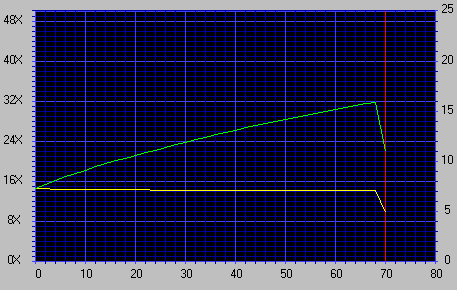 Mitsumi CR-4805TE  Both drives have different graphs of reading, typical of normal 32x models. A slope of the graph in case of reading of the "noname" disc by the Ricoh drive is explained by higher requirements of the RW7083A to disc quality, and by the unstable recording of the disc on edges. CD Speed 99 test results of the recorded CD-R Philips Silver.
CD Speed 99 test results of the recorded Mirex CD-R discs.
CD Speed 99 test results of the recorded "noname" CD-R discs.
The results of both models don't differ much. But the RW7083A is still leading in the most of cases except one with the "noname" CD-R where the Ricoh showed too high seek time. CD Quality Check test results of the CD-RW (UDF) discs recorded at 4X.
CD Quality Check test results of the CD-RW (UDF) discs recorded at 8X.
CD Quality Check test results of the recorded CD-RW (ISO) discs.
Like in all previous tests, the Ricoh performed very well. The Mitsumi has lagged behind by a little margin. Read speed of the recorded CD-R Philips Silver /CD Quality Check/
Read speed of the recorded CD-R Mirex /CD Quality Check/
Read speed of the recorded CD-R "noname" /CD Quality Check/
The Ricoh's advantage in the CD Quality Check test is practically unnoticeable, and its leadership is out of the question. Quality of the recorded CD-R Philips Silver /CD-ROM Drive Analyzer/Mitsumi CR-4805TE 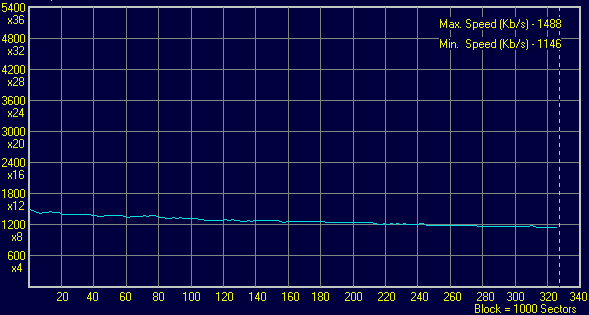 TEAC CD-540E 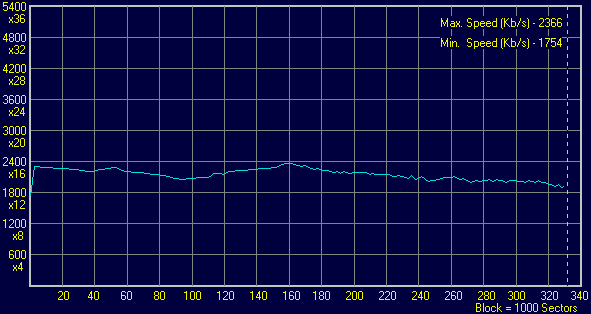 Ricoh RW7083A 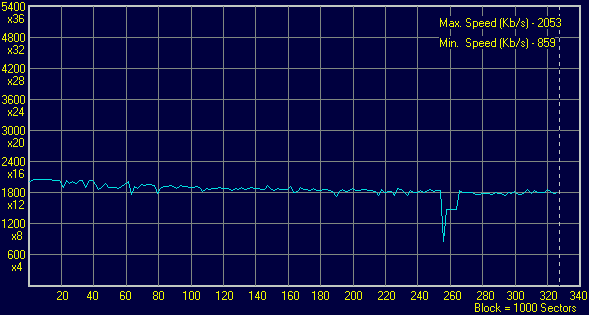 TEAC CD-540E 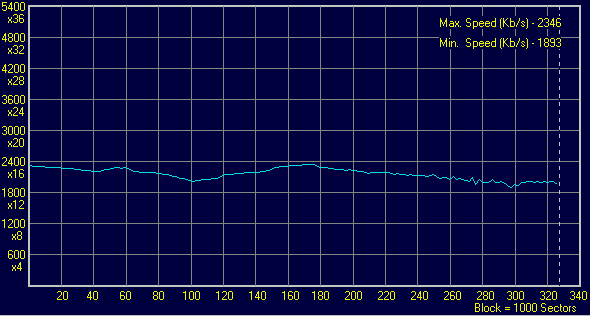 Quality of the recorded CD-R Mirex /CD-ROM Drive Analyzer/Mitsumi CR-4805TE 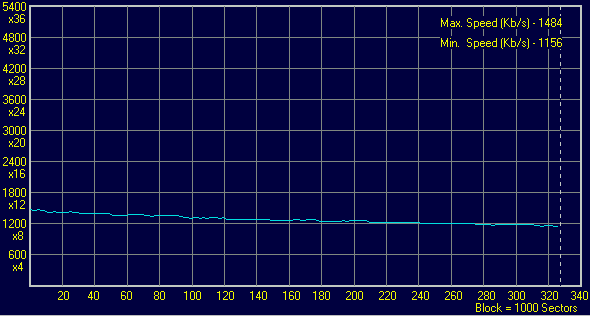 TEAC CD-540E 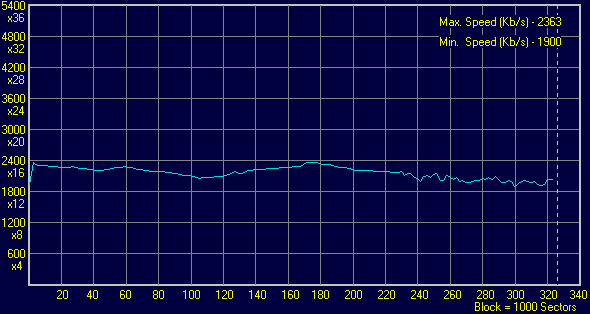 Ricoh RW7083A 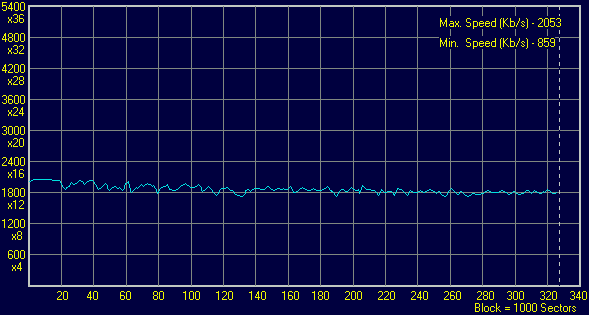 TEAC CD-540E 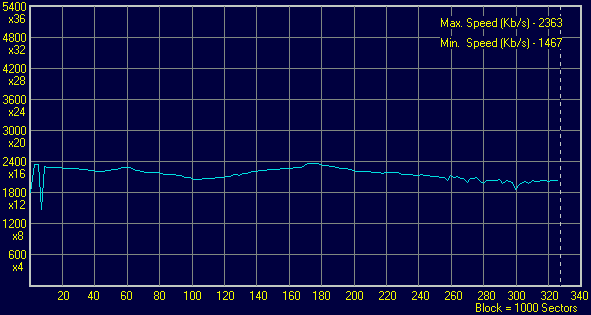 Quality of the recorded "noname" CD-R disc /CD-ROM Drive Analyzer/Mitsumi CR-4805TE 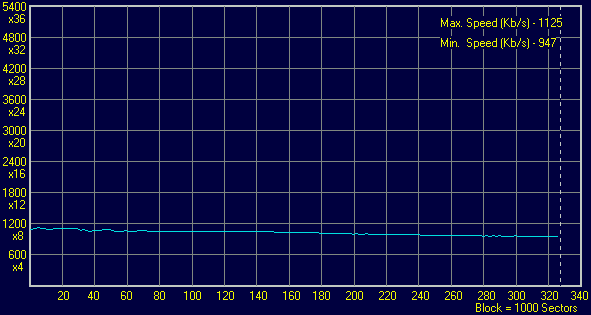 TEAC CD-540E 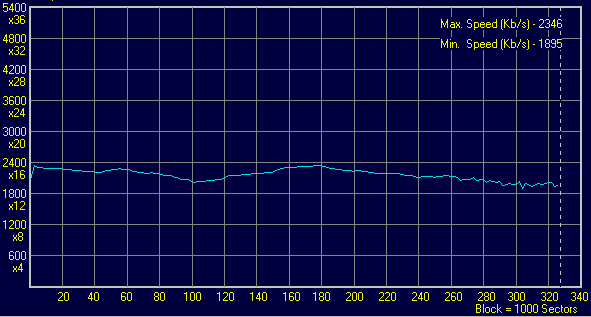 Ricoh RW7083A  TEAC CD-540E 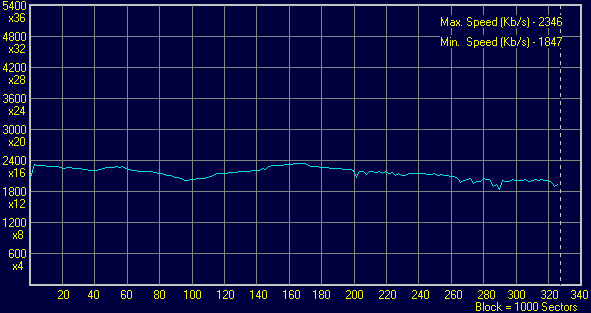 The Mitsumi has not very even, gradually descending graphs. The Ricoh's graphs have big notches, but at the same time it reads at a greater speed. Sound track extraction from audio CDs (CDDAE 99)Ricoh RW7083A
Sound track extraction from audio CDs (CDDAE 99)Mitsumi CR-4805TE
* - 7.37% means that the drive extracted 7.37% of the CD with errors. Looking at the track extraction results it seems that the Mitsumi works slowly, but with the less number of errors, the Ricoh, on the contrary, operates fast and there are more errors. But if we limited the extraction speed of the RW7083A, we get not more errors than of the CR-4805TE. At the same time, we will have some speed reserve for high-quality discs. Advanced DAE QualityRicoh RW7083A
Mitsumi CR-4805TE
The detailed information on the tested parameters are given in the help file to the CDSpeed99 test program. If you don't need the utility, then here you can find the HTMl help file. Judging by the results of this test, the Ricoh RW7083A is a more appropriate drive for implementing recording and for working with Audio CDs: quite good access time, a small offset value, a correct operation with subchannel data (unlike the Mitsumi). The only drawback is lack of possibility (according to the Advanced DAE Quality Test) to read the discs which contain data in the CD Text format. OverburnRicoh RW7083A
Mitsumi CR-4805TE
Direct copying from recorded CDs to a hard discCopying of the recorded CD-R Philips Silver
Copying of the recorded CD-R Mirex
Copying of the recorded CD-R "noname"
Reading of damaged CDsRicoh RW7083A"Golden" CD 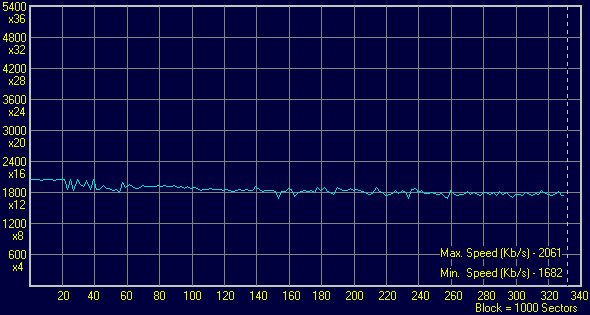 Scratched disc 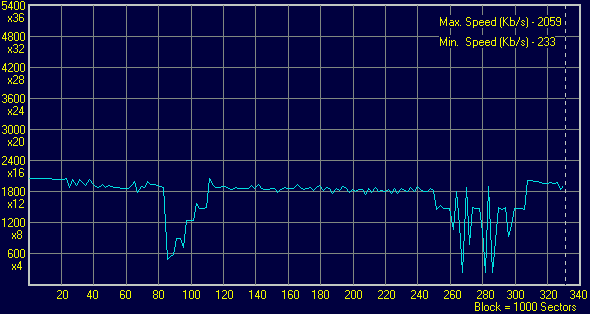 On the scratched disc a saw is especially well seen on the last parts. But each time after the drive fixes an error and the speed lowers, it tries to lift the latter up to the initial level. That is why the graph demonstrates such a high amplitude of splashes. 75% of the disc was read successfully. Mitsumi CR-4805TE"Golden" CD .gif) Scratched disc .gif) Slow, but accurate are the right words for operation of the Mitsumi. Nevertheless, having come across the first absolutely unreadable area, the drive fails to cope with it, that is why the CR-4805TE couldn't read the damaged disc by more than 60%. Conclusion and summary.Ricoh RW7083AThis model is a deserved bestseller in the Ricoh series. The recorder copes perfectly with reading and recording. But you should remember that you will achieve the best results only with high-quality discs. Operation with CD-RW discs is not that bad. Comparing the recorder with the TEAC W58E, it is difficult to say which of them is more attractive as far as cost, performance and record quality are concerned. I think that the choice should be based on your preferences and on a warranty period. The connection of Samsung to the production of this model might scare away many users. It is difficult to make those people who are prejudiced against the Korean company change their mind. In this case one should remember that there is always an alternative. Mitsumi CR-4805TEIt is an average recorder with not bad possibilities and a very low price. The CR-4805TE will perfectly suit tight-budget users. Besides, you should keep this model in mind if you want to replace your CD-ROM drive. It will be useful if you built up a computer from the beginning, and a DVD drive is not a necessary feature. Do not pay too much attention to a low reliability of the Mitsumi drive because it will become obsolete much faster that it will reach its death. If you are mostly going to record and process audio CDs, you'd better look at more expensive solutions such as Ricoh RW7083A or TEAC W58E. Test programs:
Write a comment below. No registration needed!
|
Platform · Video · Multimedia · Mobile · Other || About us & Privacy policy · Twitter · Facebook Copyright © Byrds Research & Publishing, Ltd., 1997–2011. All rights reserved. |